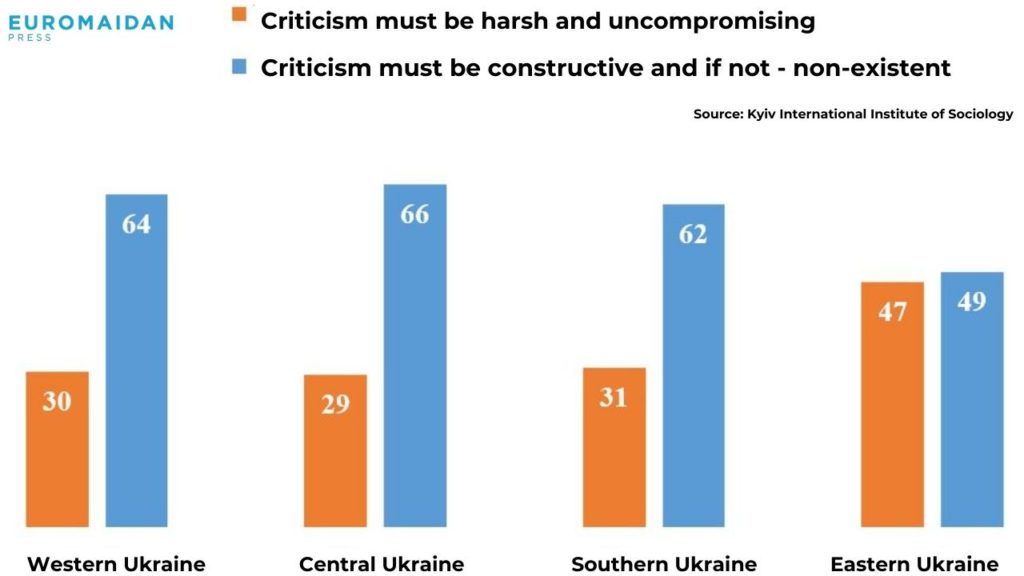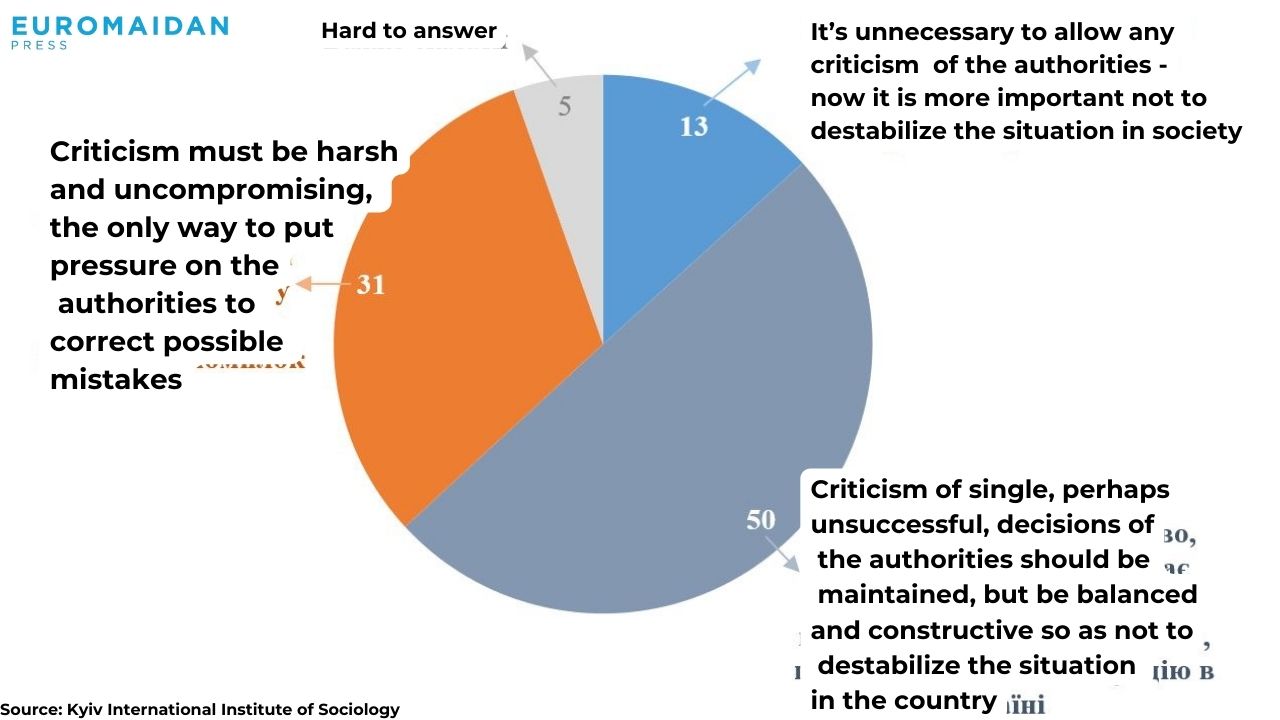According to a survey conducted by the Kyiv International Institute of Sociology (KIIS) in May 2024, 63% of Ukrainians believe that criticism of individual government actions should either be constructive and avoid destabilizing the country (50%) or should not be allowed at all (13%), while 31% of Ukrainians think criticism should be harsh and uncompromising.
The percentage of Ukrainians who find it necessary to criticize the authorities' actions even during wartime has risen since Russia’s full-scale invasion in 2022 when KIIS conducted a similar survey. In 2022, the majority of Ukrainians argued that it was not worth destabilizing the situation and criticizing the authorities' actions.
The survey data presented by KIIS reveals similar situations in western, central, and southern Ukraine, where the majority (62-66%) believe criticism should be constructive or absent. However, in eastern Ukraine, opinions are almost evenly split, with 49% supporting more constructive criticism and 47% insisting on harsh, uncompromising criticism.

Trust in President Zelenskyy
KIIS also asked respondents about their trust in President Volodymyr Zelenskyy. The survey found that 59% trust Zelensky (21% completely, 38% somewhat), while 36% do not trust him (22% not at all, 14% somewhat).
The respondents' attitudes towards criticism of individual government actions vary depending on their trust in Zelenskyy. Among those who do not trust the President at all, the majority (62%) believe that criticism should be harsh and uncompromising. And even among them, a third (34%) believe that criticism should be at least within a constructive framework.
Among those who trust the President, 76-77% believe criticism should be constructive or absent (compared to 18-20% who speak of harsh, uncompromising criticism).
Comment from director of KIIS
Anton Hrushetskyi, executive director of KIIS, commented that excessive criticism can destabilize the country's situation and worsen Ukraine's relations with Western partners. However, he also noted that without critical feedback, the Ukrainian government could make faulty decisions and threaten Ukraine and its people.
The survey, conducted by KIIS from 16-22 May 2024, involved 1,067 respondents residing in all regions of Ukraine (government-controlled territory), older than 18 years old, and was carried out using computer-assisted telephone interviews (CATI) based on a random sample of mobile phone numbers.
Another KIIS survey found that 50% of Ukrainians believe Zelenskyy fulfilled few or none of his promises during his five years in office. Of these, 25% think he fulfilled none. The reasons cited include dishonest individuals in his team (50%), a lack of competent staff (26-32%), the full-scale Russian invasion, Zelenskyy's inexperience, and oligarchic influence.
Read more:
Half of Ukrainians believe Zelenskyy fulfilled few or none of his promises, survey says
Czechia to pay one-time travel grant for Ukrainian refugees’ return home
Europeans largely support humanitarian and financial aid to Ukraine, survey shows
Changing minds key to beating corruption, sociology professor says

